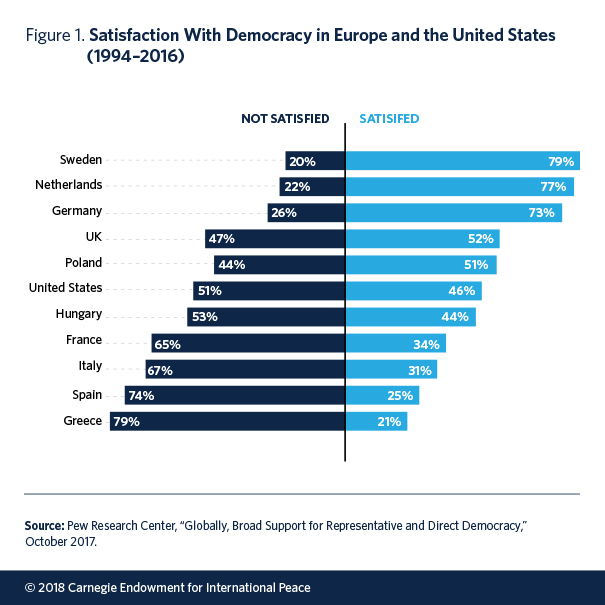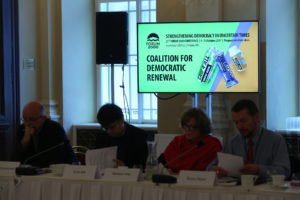
Liberal democracy is in crisis where it was long thought most securely established. In both Western Europe and the United States, polls suggest voters are losing faith in democratic institutions; polarization and illiberalism appear to be on the rise, notes Saskia Brechenmacher, Associate Fellow with the Carnegie Endowment’s Democracy and Rule of Law Program.
 A striking feature of this crisis moment is the perception that many of the most pressing political issues are shared conditions of the United States and Europe—a significant change from earlier decades. This perceived convergence raises critical questions: To what extent are current democratic weaknesses in Europe in fact similar to or different from those facing the United States? And what are the most fertile areas for mutual learning and cooperation? Brechenmacher asks in a new report:
A striking feature of this crisis moment is the perception that many of the most pressing political issues are shared conditions of the United States and Europe—a significant change from earlier decades. This perceived convergence raises critical questions: To what extent are current democratic weaknesses in Europe in fact similar to or different from those facing the United States? And what are the most fertile areas for mutual learning and cooperation? Brechenmacher asks in a new report:
Shared Challenges
- Following recent governance crises, popular confidence in political institutions has plummeted to historically low levels on both sides of the Atlantic—particularly among the less educated and less well-off.
- Many U.S. and European voters are disenchanted with mainstream political parties, which they see as ineffective and out of touch. This groundswell of antiestablishment sentiment has benefited more extremist outsider movements and candidates, triggering greater political polarization and fragmentation.
- Citizens are finding it harder to determine which news sources are trustworthy and which are not. Deliberate efforts to spread disinformation create new challenges for democratic discourse.
- Government responses to terrorist threats have triggered new concerns over creeping extensions of executive power. Finding the right balance between security and individual liberty has become increasingly complex, partly due to unsettled questions about citizens’ right to privacy.

21st Forum 2000 Conference
However, in both the United States and in Europe, the current moment of crisis has given rise to new local experiments in democratic innovation and new forms of mobilization, Brechenmacher concludes:
Failures of representation and delivery are galvanizing citizen action, at times putting governments on the offensive. Illiberal and antidemocratic measures by governments continue to spark significant public mobilization. The trends are thus not uniformly negative: citizens’ search for more effective accountability mechanisms represents a promising source of democratic renewal. The sense of shared democratic malaise across Western democracies thus also offers the opportunity for a new reform agenda, rooted in greater transatlantic exchange and cooperation.







